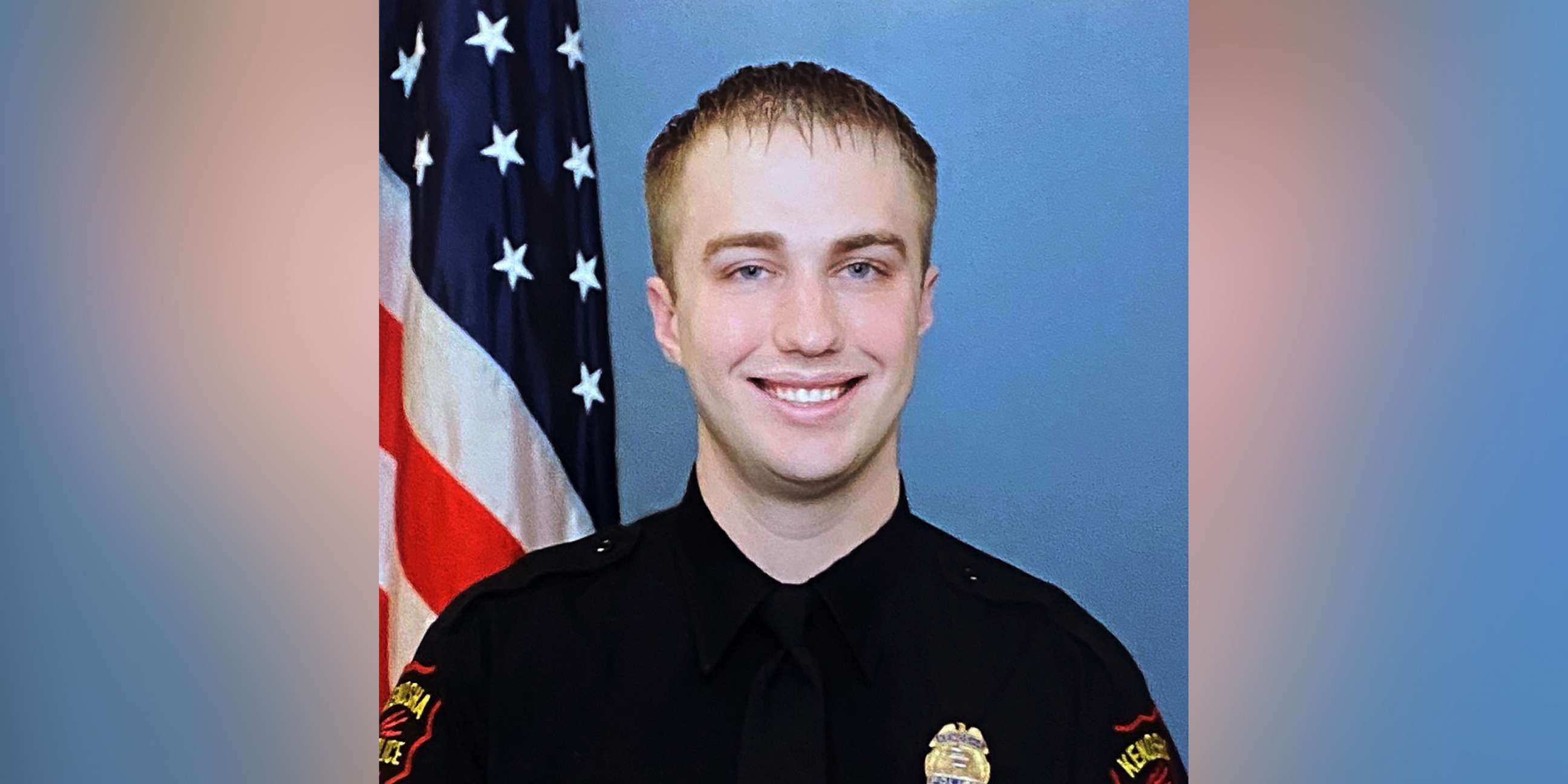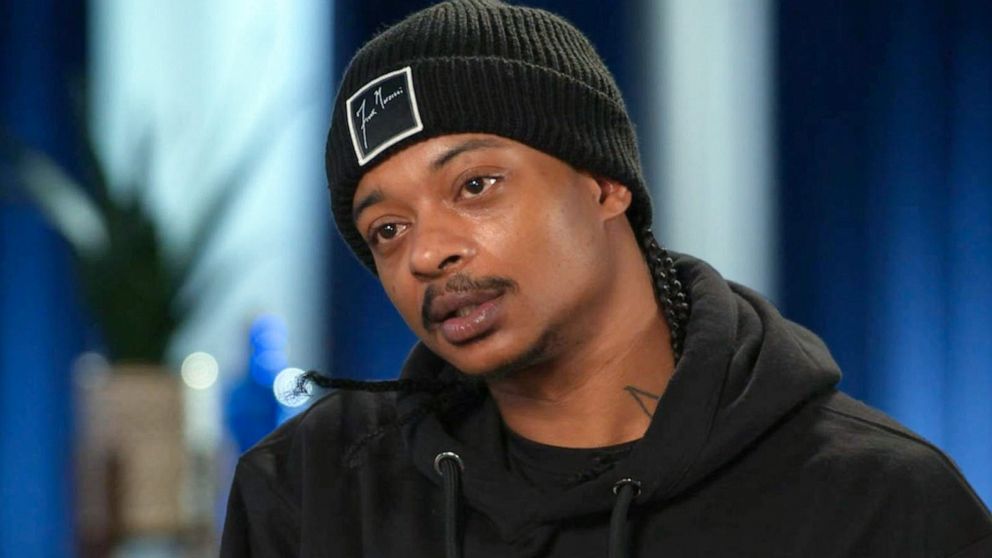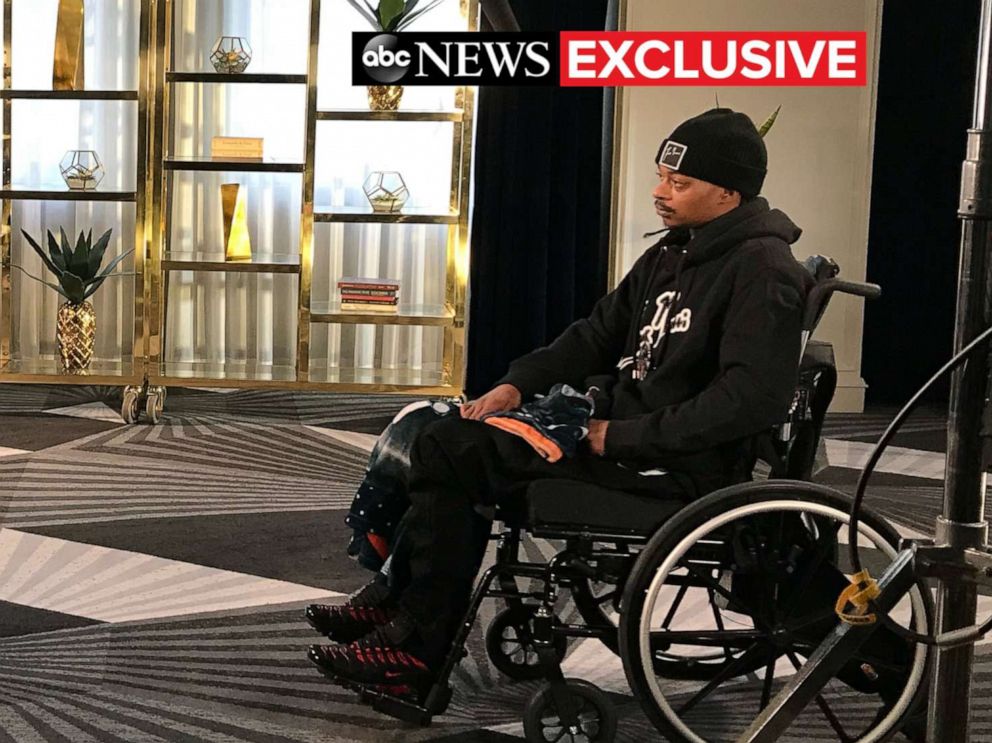Officer who shot Jacob Blake won't face civil rights charges, DOJ says
Jacob Blake was partially paralyzed in the 2020 shooting.
Civil rights charges will not be pursued against the Wisconsin police officer who shot Jacob Blake last year, partially paralyzing him, the Department of Justice announced Friday.
Kenosha Police Officer Rusten Sheskey, who is white, fired seven times at Blake, who is Black, on Aug. 23, 2020, after responding to a report of a domestic dispute, authorities said.
Following an investigation, federal prosecutors said the evidence obtained was insufficient to prove Sheskey "willfully used excessive force," the DOJ said in a statement.
Investigators reviewed police reports, law enforcement accounts, witness statements, witness affidavits, photographs, videos and more of the incident, which was captured on a witness' cellphone and sparked days of large-scale protests in Kenosha.
"After a careful and thorough review, a team of experienced federal prosecutors determined that insufficient evidence exists to prove beyond a reasonable doubt that the KPD officer willfully violated the federal criminal civil rights statutes," the DOJ said.
The DOJ said it has informed representatives of Blake's family about its decision.

ABC News spoke with Blake's father, Jacob Blake Sr., shortly after the DOJ's announcement. He said he had not yet heard about the decision.
"I was expecting more from the administration than this. I was expecting much more than this," he said. "I believe that we're in a systematic racist system, and that this system was not set up for us. So I didn't expect the system to work for us, because it never works for us. It wasn’t made for us."
Blake's father said he disagrees that Sheskey didn't willfully use excessive force.
"Seven times in the back is excessive," he said. "I don't care if you're a dog. Seven times in the back, that's not excessive?"

The shooting occurred as officers were attempting to detain Blake, who had a warrant out for his arrest. After Blake walked to the front of his vehicle toward the driver's side door, Sheskey fired his gun seven times toward his back.
Blake was struck by six of the bullets and is now paralyzed from the waist down.
An unfolded knife was found on the driver's side floorboard of Blake's vehicle, authorities said.
Kenosha County District Attorney Mike Graveley also declined to file any criminal charges against Sheskey related to the incident last year, saying at the time the officer was justified in his use of force and was acting in self-defense because Blake was armed with a knife.
Sheskey was not disciplined for his use of force by the Kenosha Police Department either, which said he was acting "within policy."

In March, Blake filed a federal civil rights lawsuit against Sheskey, accusing the officer of using "excessive and unnecessary" force.
"We believe that this lawsuit will help establish accountability," B'Ivory LaMarr, one of Blake's attorneys, told ABC News at the time.
ABC News' Stephanie Wash contributed to this report.




